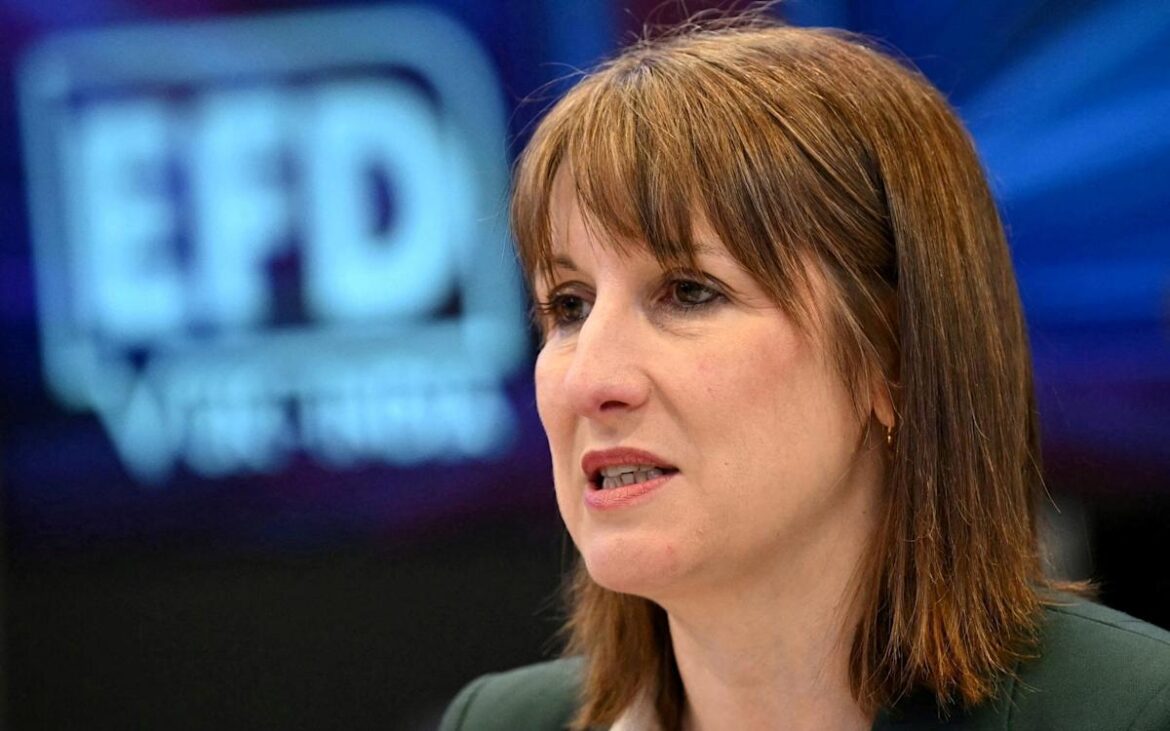Rachel Reeves should consider raising the basic rate of income tax for the first time in 50 years, the director of the Institute for Fiscal Studies (IFS) has said.
Paul Johnson suggested the Chancellor follow in the footsteps of Denis Healey, the former Labour chancellor, and take “drastic action” by increasing the basic rate of income tax, which is currently 20pc, in her autumn Budget.
However, experts warn it would leave workers hundreds of pounds worse off a year.
Writing in The Times on Monday, Mr Johnson said: “If Reeves does find herself in need of more money come the autumn, perhaps she should take a leaf from the book of her distinguished predecessor both as Labour chancellor and as an MP for the city of Leeds: break the 50-year taboo, be honest and transparent in her choice of tax policy, and raise the basic rate of income tax.”
Tuesday marks exactly 50 years since Mr Healey raised the basic rate from 33pc to 35pc when faced with surging inflation and high unemployment.
In the years since, politicians have moved “heaven and earth” to avoid raising it, Mr Johnson said.
Income tax is the simplest way for the Treasury to bring in large amounts of revenue. A one percentage point increase in the basic rate would raise £8bn, while a two percentage point increase would generate over £16bn, according to calculations by accountancy firm Blick Rothenberg.
However, the move is deeply politically unpopular because it would leave millions of workers worse off. A worker on £30,000 would see their annual pay fall by £175 if the rate increased to 21pc and £349 if it rose to 22pc. Meanwhile, a worker earning £50,000 would be worse off by £375 or £749 respectively.
As a result, successive Chancellors have only ever reduced the rate since Mr Healey’s 1975 Budget. It is currently charged at 20pc on income earned between £12,571 and £50,270.
Experts now predict that Ms Reeves will be forced to either increase taxes or cut spending in the autumn Budget to avoid breaking her self-imposed fiscal rules.
Britain’s tax burden is already soaring to a post-war high, with the income tax bill expected to leap from £260bn in 2024-25 to £310bn in 2027-28.
Despite this, some experts think further tax rises are now “inevitable”.
Nimesh Shah, of Blick Rothenberg, said: “Given the current state of the country’s finances, and global events likely to have fully wiped out the Chancellor’s fiscal headroom, it appears inevitable that income tax has to increase at the next autumn Budget.”
However, he said this was more likely to come in the form of a reversal in the Conservative government’s National Insurance cuts.
“For me, a more likely ‘win’ for the Chancellor would be to reverse the Conservative government’s National Insurance cut – citing that this measure was always unsustainable for the country’s finances.”
Alternatively, the Chancellor could extend the freeze on income tax thresholds.
Rather than increasing the rates, the previous Conservative government chose to freeze income tax thresholds for years – generating billions in extra revenue by stealth as rising wages pushed workers into higher tax bands.
Laura Suter, of stockbroker AJ Bell, said: “While Labour made an election promise not to raise taxes on working people, they have already done so by the back door by continuing with the income tax band freeze that started under the Tories.”
She added: “The Chancellor could extend the freeze further into the future if she wanted to continue this boost to taxes – and that’s likely to be a more palatable option as it doesn’t strictly raise income tax rates and so doesn’t break the manifesto promise.”
Broaden your horizons with award-winning British journalism. Try The Telegraph free for 1 month with unlimited access to our award-winning website, exclusive app, money-saving offers and more.



